recommended reading list
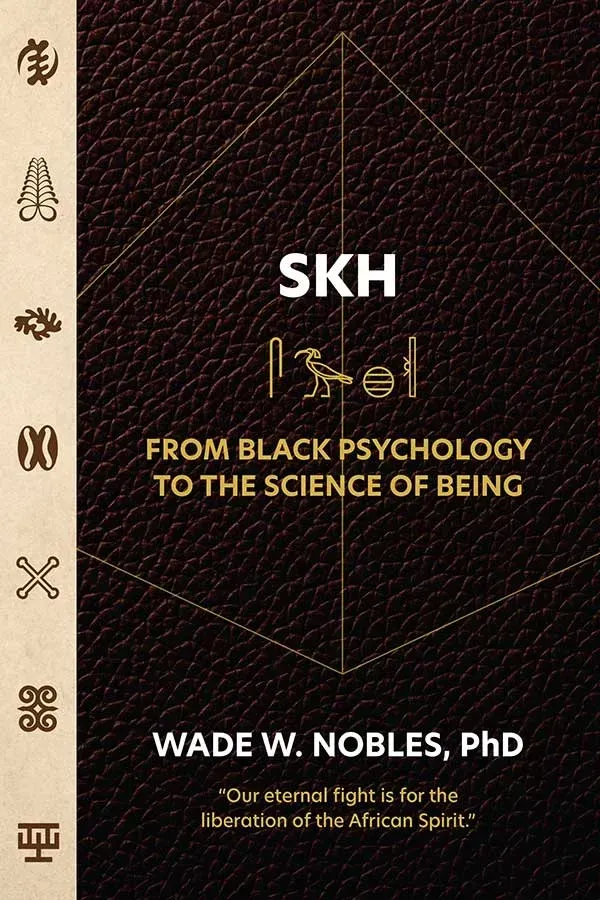
Skh From Black Psychology to The Science of Being
A pioneer in his field, and founding member of the Association of Black Psychologists, Dr. Wade Nobles life’s work has been no less than a formal engagement in the on-going theoretical development and programmatic application of African (Black) psychology, African centered thought, and cultural grounding to address the liberation and restoration of the African mind and world-wide development of African people.
In his new book, Skh From Black Psychology to The Science of Being, Dr. Nobles will revolutionize how we internalize and operationalize psychological processes and reframe how we think of psychology. Through his intellectual journey, Nobles discusses the advent of the discipline of Black Psychology and detail its evolution to the Science of Being. With a brief critique of the inadequacy of the Western Grand narrative, the “big ideas” essential to exploring the fundamental and necessary epistemic correction will include an explication of African (BaNtu) thought and worldview. Nobles will detail the need to “return to the source” and explore BaNtu episteme as grounding.
Skh From Black Psychology to The Science of Being engages ancient African thought as precursors to the modern appreciation of living systems (e.g., biophotons, quantum coherence, spontaneous biophotons signals, and squeezed state) and the science of Skh.

A2: A Scholarly Poetical Science Discourse
A2 is a qualitative inquiry that pushes the bounds of multidisciplinary scholarship through poetics, prose, and academic discourse. Though fairly new, poetic inquiry as a research method has been found in “social science disciplines of psychology, sociology, anthropology, nursing, social work, geography, women’s/feminist studies and education,” (Prendergast, 2009, p. 545). Harnessing this methodology, Dr. Ayo Sekai ventures to push the limits of academic scholarship by interrogating poetic discourse to address stigmas, norms and psycho-cultural perceptions weaponized against Black people through language. Recognizing the usage of language in oppressive systems, A2 takes readers on an intellectual journey that harnesses the Black experience through poetically informed research, blending the socio-cultural lens of the spoken word. With a foundation of political science, and Sekai’s unique voice in the field of Linguistic Imperialism, this text provides eye-opening perspectives through its titular scholarly poetical science discourse.
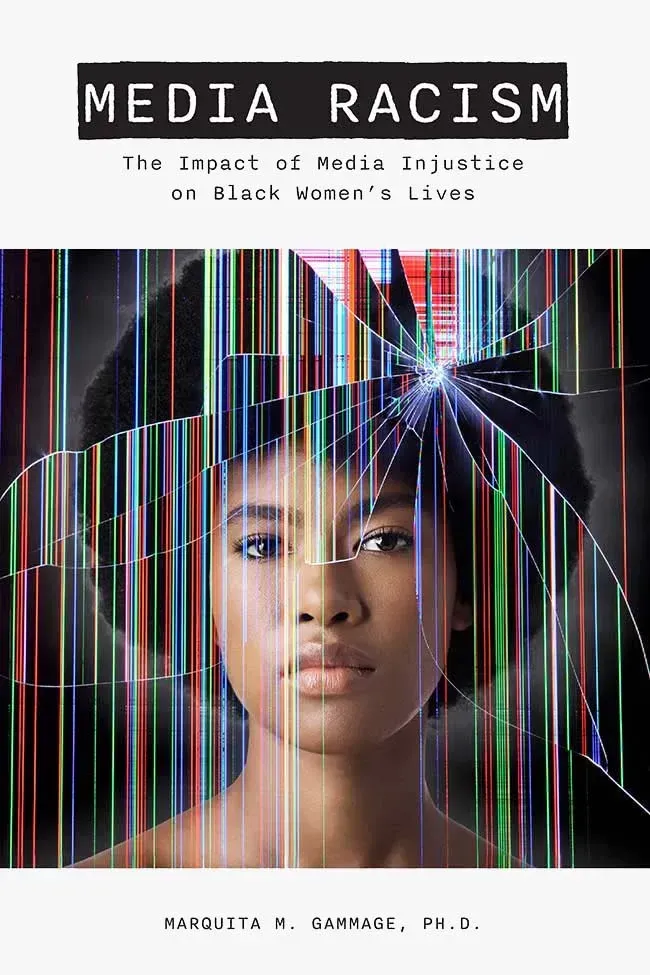
Media Racism: The Impact of Media Injustice on Black Women’s Lives
As contemporary media continues to be a battleground for the portrayal of Black Women, Gammage explores the troubling proliferation of racially informed media depictions of the lives of Black Women, providing essential insights into the intersection of race, gender, and media representation in today’s world.
Media Racism: The Impact of Media Injustice on Black Women’s Lives establishes a critical framework for examining the role of media in shaping the lives of Black Women. It confronts the alarming scarcity of research dedicated to understanding the significance of media in perpetuating life disparities aamong this demographic. Through meticulous research and analysis, tables, and figures, Gammage sheds light on the multifaceted effects of media racism, encompassing physical, mental, cultural, political, and social dimensions.
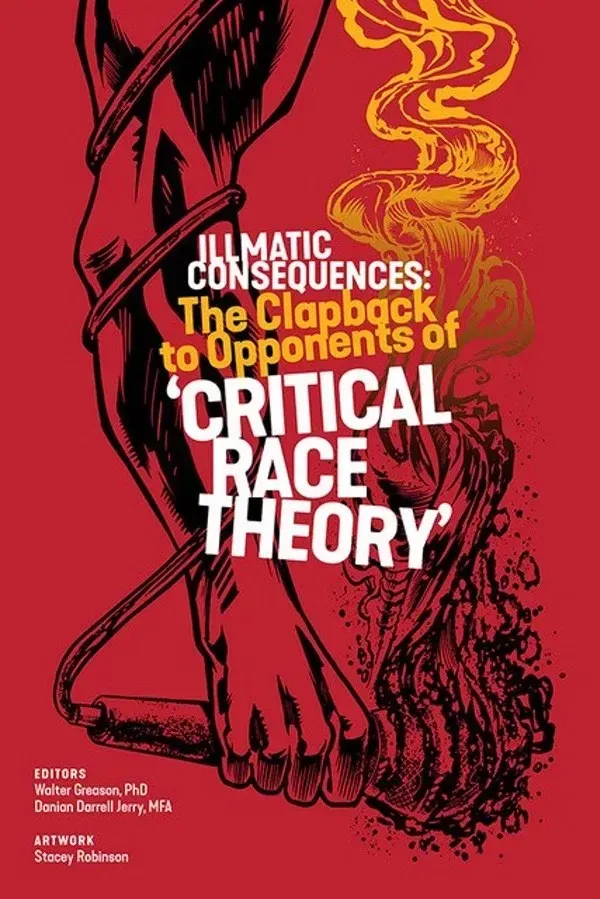
Illmatic Consequences: The Clapback to Opponents of ‘Critical Race Theory’
Illmatic Consequences: The Clapback to Opponents of ‘Critical Race Theory,’ is a unique mix of social science and hip-hop essays that address the marginalization of Blacks in the United States. Led by editors Walter Greason and Danian Jerry, the contributors in this edited volume address pervasive social injustice using hip-hop and Afrofuturism to offer solutions to cultural divisiveness.
Illmatic Consequences was influenced by rapper Nas’s 1994 debut album “Illmatic,” which features internal rhymes and inner-city narratives based on Nas’s personal experiences. “Nas’s 1994 album ‘Illmatic’ is fundamentally a statement of self-worth. It’s not even just a conscious effort. It’s just you do it because it’s embedded in you—and that’s the feeling, the vibe we wanted anyone reading the book to get from all the constituent chapters,” said Greason.
The essays, written by prominent and emerging social science scholars, artists, and journalists, address the disinformation campaign around CRT, the attacks on public education, the rise of mass disinformation, and other social injustice issues plaguing the nation.
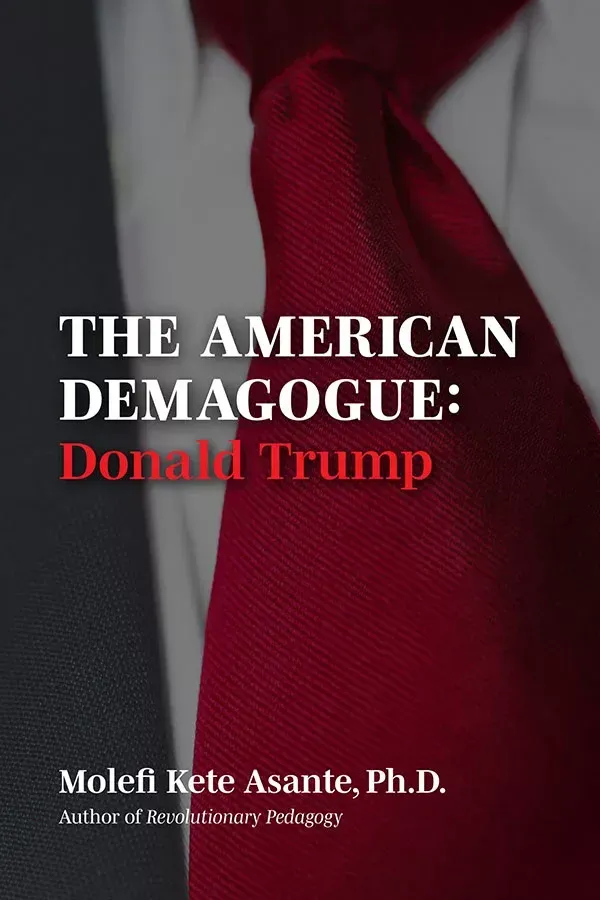
The American Demagogue: Donald Trump (Revised Edition)
The American Demagogue thoroughly examines Donald Trump’s presidency, uniquely blending perspectives from communication and Africology. In this edition, Molefi Kete Asante skillfully dissects Trump’s manipulation tactics, focusing on the use of fear, lies, and derogatory language while drawing insightful parallels to historical demagogues. The book goes beyond conventional critiques by exploring Trump’s impact on core American ideals, such as environmental protection, racial justice, and compassion. Asante’s nuanced analysis of Trump’s rhetoric and its implications on the democratic tradition, offers readers valuable insights into the resilience of American democracy. As an election-year reflection, the book serves as a distinctive and powerful critique, urging vigilance against demagoguery and emphasizing the need to safeguard democratic principles.
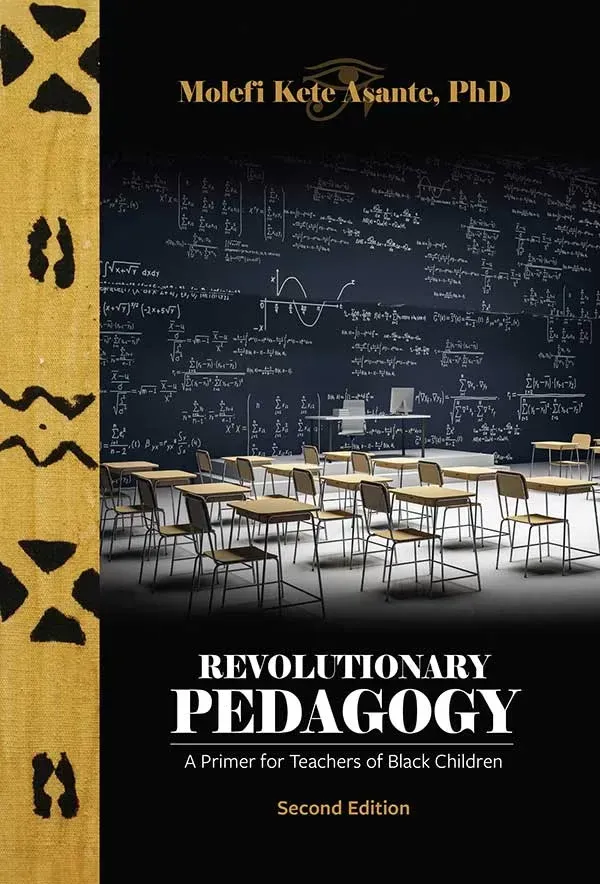
Revolutionary Pedagogy: Primer for Teachers of Black Children, Second Edition
Since its first release in 2017, Revolutionary Pedagogy: A Primer for Teachers of Black Children has captivated educators and professionals in the field of education with overwhelming praise, offering both theoretical insights and practical guidance on pedagogy.
While its focus is on empowering students of African descent, the principles presented in this book transcend ethnic boundaries and are designed to equip teachers with the tools to create revolutionary pedagogy for all learners. In the Second Edition, Asante:
- Challenges the existing education system and promotes a commitment to excellence for all students
- Corrects distorted information, and helps educators recognize dysconscious racism.
- Provides guidance for educators in urban environments, addressing unique challenges and unlocking the potential of every student.
- Explores the pressing issue of urban violence and calls for an educational revolution rooted in cultural identity and personal growth.
- Re-centers dislocated African-American students and expand the knowledge of all other students in the classroom.
- Advocates for an Afrocentric approach to unlock student potential and foster empowerment in the classroom.
- Inspires educators and educational professionals to reshape education and create a brighter future for all learners.
Whether you’re an educator seeking innovative approaches to teaching, or an educational professional dedicated to promoting inclusivity and empowerment, Revolutionary Pedagogy is an essential resource that will revolutionize the way you engage with all students.
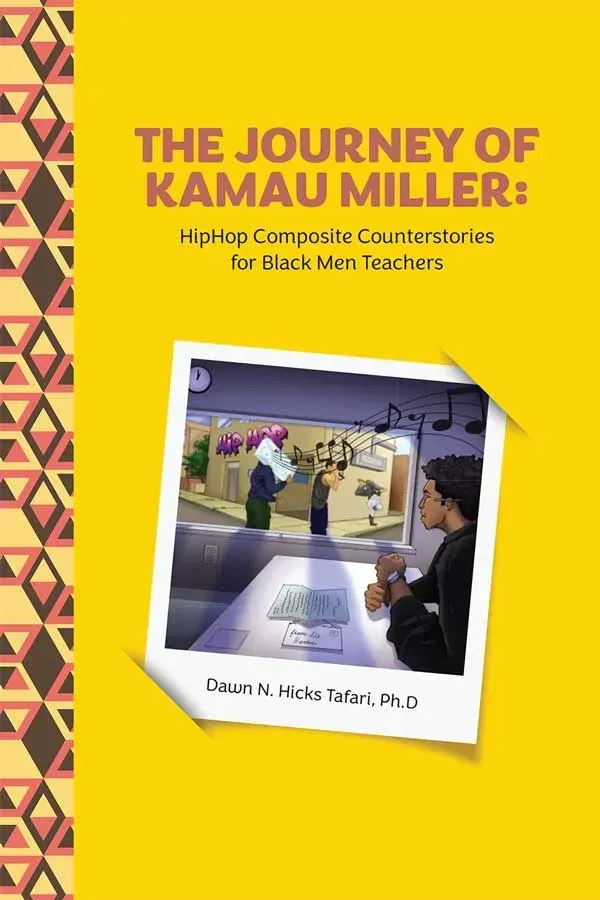
The Journey of Kamau Miller: HipHop Composite Counterstories for Black Men Teachers
The Journey of Kamau Miller: HipHop Composite Counterstories for Black Men Teachers is a powerful and deeply personal narrative that follows the life of Kamau Miller, a resilient third-grade teacher from New York City. Set against the backdrop of Edenwald Projects, the Bronx, and a HipHop-infused soundtrack, the book uncovers the hardships, triumphs, and pivotal moments in Kamau’s life. Readers are invited into Kamau’s world as he navigates the challenges of being a Black men teacher, the impact of HipHop culture, and the journey of self-discovery. The book weaves together themes of identity, education, community, and empowerment while paying homage to the legacy of Derrick A. Bell. Written with unapologetic creativity, this work engages readers with its accessible, engaging, and thought-provoking storytelling. It’s a celebration of Black men teachers, their experiences, and the potential for change and progress in education. Kamau Miller not only serves as a testament to the resilience and strength of Black male teachers but also as a tribute to the countless voices waiting to be seen and heard. “The Journey of Kamau Miller” offers an inspiring and transformative reading experience, shedding light on the complexities of life, love, and the pursuit of making a meaningful impact in the world of education.
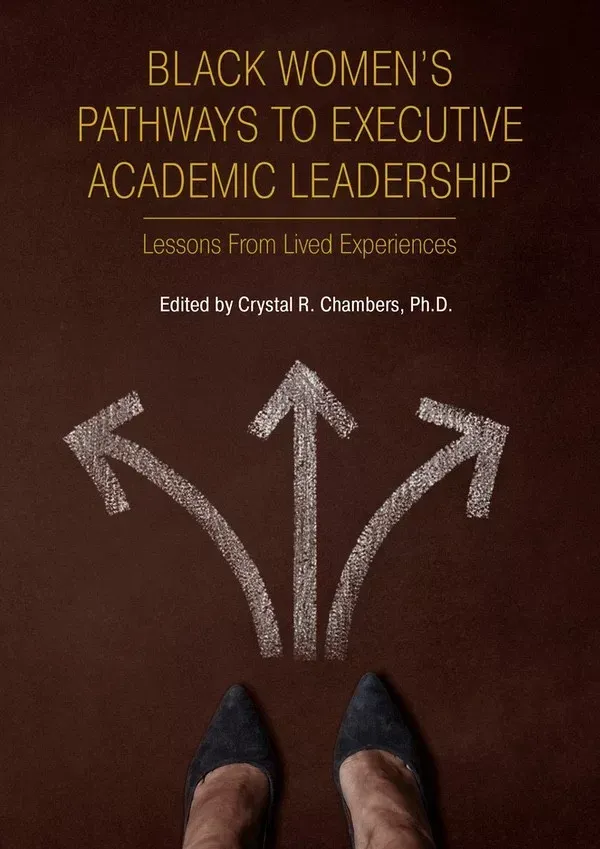
Black Women’s Pathways to Executive Academic Leadership: Lessons from Lived Experiences
Over half of college presidents (55%) are planning to step down from their positions within the next five years. This impending change in leadership, particularly among underrepresented groups, presents an opportunity not only to diversify leadership but more importantly address “the need for leaders who understand the experiences of racially and ethnically diverse student bodies , who can identify barriers that mask merit, and who can garner support to make campuses welcoming and inclusive spaces for all.” Through personal reflections and insights, the authors in this volume provide a comprehensive analysis of the experiences and challenges faced by Black women leaders in community colleges, HBCUs, and predominantly White institutions (PWIs), and offers a comprehensive, practical, and research-based exploration of executive academic leadership, providing valuable insights and guidance for current and aspiring leaders in higher education and the importance of traditional and nontraditional leadership pathways to an everchanging academic environment. Included is a powerful call to action for institutions of higher education to prioritize diversity and inclusion in their leadership structures, and to recognize and support invaluable contributions of Black women leaders in shaping the future of education.
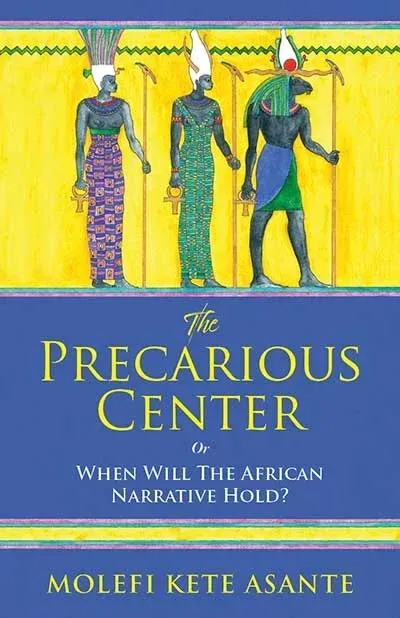
The Precarious Center or When Will the African Narrative Hold?
The Precarious Center or When Will the African Narrative Hold? dispels the Western romanization of Greek, English, French, German, Spanish, and Portuguese to the detriment of African ideas and ideals. This text re-centers the African world and dispels the dominating myths and memes of Greek society, which have obliterated all other approaches with the false idea of European superiority in a multiethnic and multicultural world.
The Precarious Center strengthens global communication equality and frees the human spirit by challenging the assertive memes of the West to allow spaces for other cultural postures to thrive.
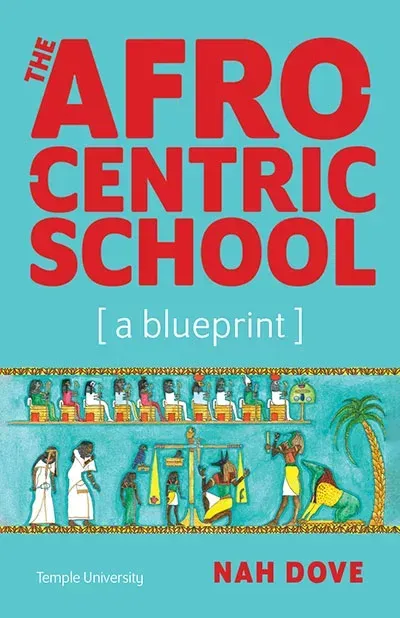
The Afrocentric School: [a blueprint]
Who are we? Is a central question asked throughout the African Diaspora. This handbook offers answers to that burning question based on ancient African principles that relate to the critical role of teaching our children and are drawn from Nah Dove’s UNICEF-sponsored work in Ghana. Grounded in the love of African humanity–women, men, girls, and boys, this handbook counters anti-African and anti-Black beliefs that have been propounded over centuries. This work recognizes a range of African cultural values, beliefs, and behaviors every bit asa wide as there was amongst the different peoples who conquered Africa.
In Afrocentric School: BluePrint, the cultural legacy, and heritage of Africa is embraced to reawaken the cultural memory. Dove provides a foundational curriculum for children aged 3-15 years, with standards-based on expectations developed from child development and education baseline studies.
Readers will learn how to:
- Provide students the opportunity to begin the study of the world, its people, concepts, and history from the view of the African child’s heritage;
- Identify African principles and teachings;
- Correct distorted information; and
- Develop lesson plans that guide the teacher, parent, student, and reader in understanding African cultural history from an Afrocentric theoretical perspective.
In this presentation, we highlight a few of the many activities that teachers, parents, and families will find to reclaim African knowledge and reawaken their children’s honest and restored cultural identity.
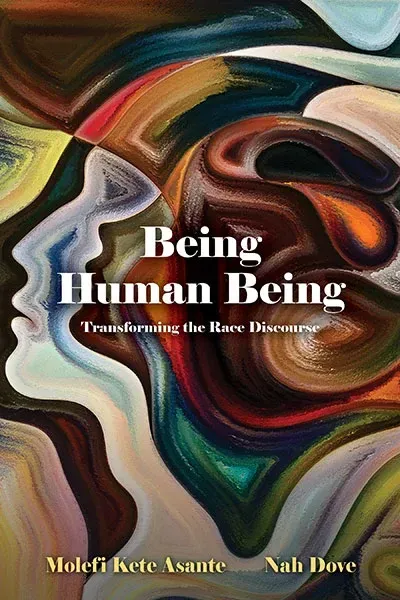
Being Human Being
During a time of high racial tension, Being Human Being seeks to dispel divisiveness, and instead presents a vision of a united humanity. With scientific basis established from The Human Genome Project, the authors explore what it means to be human, the myth of race, and the importance of common identity. The conclusions of the Human Genome Project discredit those who deny humanity’s genesis on the African continent; and, they allow for new examination of the fictitious basis upon which modern society justifies its divisions, privileges, and punishments. In this book, the discourse navigates the complex illusion of race by tracing its cultural and religious origins.
Furthering the ideas brought forth in Ibram X. Kendi’s critically acclaimed book How to Be An Antiracist, the authors express the power in ending the language of race entirely, bringing forth a new era in which racism no longer plagues the human experience. With in-depth evidence surrounding the colloquial misuse of the term “race,” Being Human Beingargues that the term human, robust, and newly re-envisioned, eradicates the need for the illusion of categorical racial boundaries. The authors, in their acknowledgment of the differences that exist among humans, found that such distinctions are more easily explained culturally rather than “racially.” Even so, habitual references to these racial partitions are ingrained into many aspects of the contemporary landscape. Knowing this, Being Human Being addresses the challenges of exchanging race for humanity within mainstream media, academic circles, and pop culture.
Being Human Being depicts the importance of education in combating those who benefit from, and promote, racism. Educating the masses would allow multicultural, pluralistic societies to be achieved in a practical way. The authors suggest that humanity is hindered by its disunity, and that through concepts like Ma’aticity, the ancient way of becoming human, society can achieve its highest potential. Featuring an array of examples, illustrations, and theoretical models, Being Human Being demonstrates that the only race is the human race. With Being Human Being, Dr. Asante has published one hundred book titles in his career.
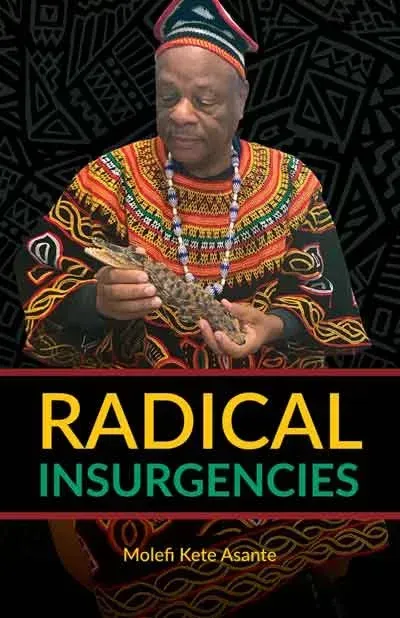
Radical Insurgencies
Radical Insurgencies draws and translates wisdom from Africology, history, sociology, and philosophy to stitch together various social and political concerns presented by Asante in various academic settings. The book offers selected portions of significant speeches, an adaptation from the author’s The American Demagogue, and a selection of conference papers presented in British Columbia, Zimbabwe, and the Chinese Communication Conference in 2011.
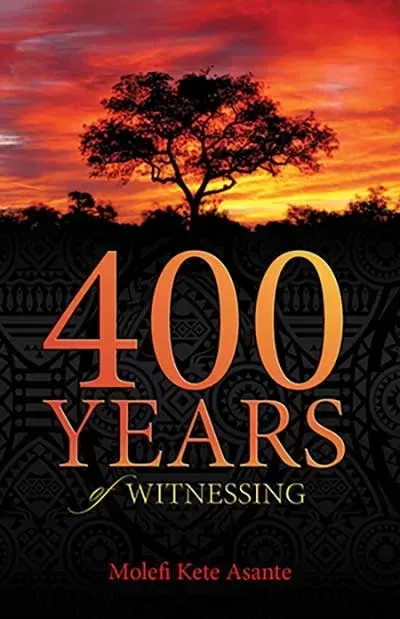
400 Years of Witnessing: A Memoir of a People 1619-2019
What is a person to do with the pain, anger, fear, frustration and dismay of Black defamation and demise due to White supremacy’s racism and anti-Blackness? Even more, how does one celebrate the triumph of surviving and escaping enslavement, establishing civil rights, creating and promulgating renaissance after renaissance as social movements while inspiring the world to take note? Wonder no more. Dr. Molefi K. Asante has eloquently penned an emotional spectrum of poems truly reflecting the spirit, soul, and humanity of Black people in 400 Years of Witnessing: A Memoir of a People 1619-2019.
The substantive and meaningful reflections on and about Black life and the social conditions it has encountered and often endured over 400 years fosters a compelling need for readers to journey page-by-page through each poem. With effortless ease to read, Dr. Asante weaves a tapestry of Black strength, vulnerability, and resolve unlike any other collection of Black poetic expressions through what is likely to become a literary favorite though the brilliance of 400 Years of Witnessing: A Memoir of a People 1619-2019.
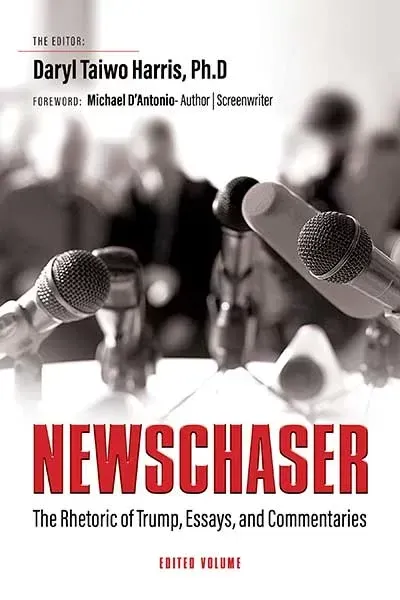
Newschaser: The Rhetoric of Trump in Essays and Commentaries
Newschaser: The Rhetoric of Trump in Essays and Commentaries, compiled by one of the leading political science theorists in the contemporary academy, brings to light some of the most telling aspects of the Trump phenomenon. In twenty-one chapters, this volume covers the entire spectrum of the Trump rhetorical campaign, pointing out the various ways the candidate rose to the top of a very large field of professional and experienced politicians. Trump defied the routines and the accepted principles of discourse to claim the mantle of being a transformative political figure.Newschaser is a collaboration that opens the door to succession planning in scholarship from one generation to the next and the application of Afrocentric ideology or African-centered thought as an underlying thematic framework.
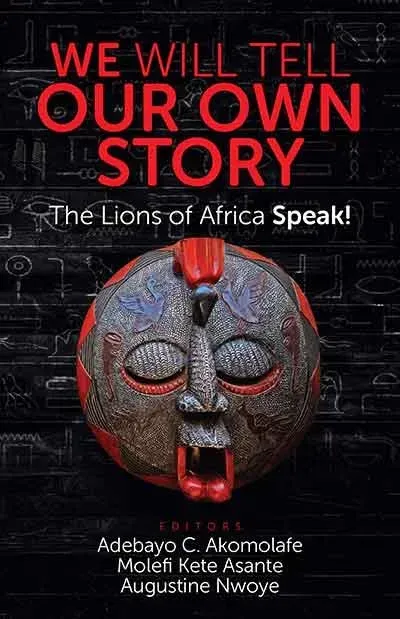
We Will Tell Our Own Story! The Lions of Africa Speak
These authors, all deeply dedicated to the telling of an African story, are committed to righting the wrongs of intellectual inquiry by setting upright the standards, criteria, and assumptions often avoided by Eurocentrists—of any complexion. Without the ‘lions of Africa’ speaking and writing about their narratives, the fields of literature, philosophy, social science, history, and psychology, evidence would cede to those without the slightest idea about the African knowledge base or how to add to it. Thus, the authors in this volume speak loudly, and write deftly and definitively to erect a new phalanx of liberated minds.
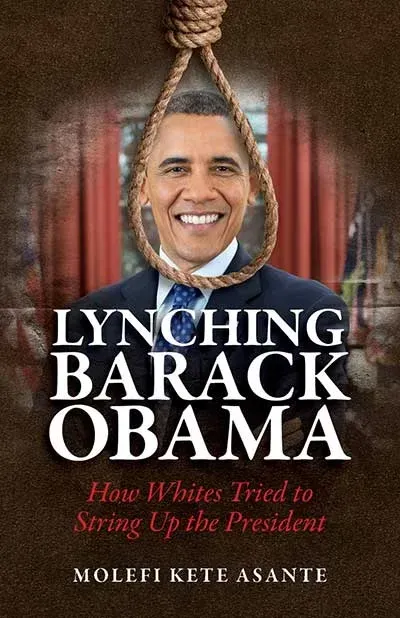
Lynching Barack Obama: How Whites Tried to String Up the President
When President Barack Obama was elected as the first Black president of the United States of America in 2008, stereotypes and racism were considered history. However, as Molefi Kete Asante demonstrates in Lynching Barack Obama: How Whites Tried to String Up the President, racism still permeates every sector of the society, and the attacks on Barack Obama as president show how deeply many white Americans held to racist beliefs and actions.
Lynching Barack Obama sheds light on the pervasive racism in the United States and highlights the blatant disregard for Blackness despite position or stature using the media, journalism, and political trends to demonstrate the need for change.
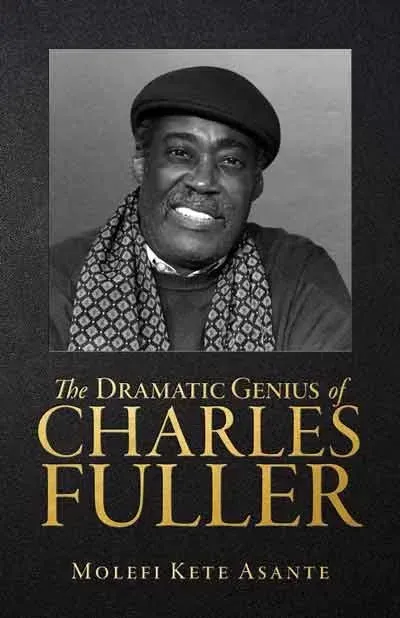
The Dramatic Genius of Charles Fuller
Charles Fuller is a pre-eminent American dramatist, yet few critics have examined Charles Fuller seriously or even speak of his philosophy, style, originality, and brilliance. Despite winning some of the highest awards in the nation, his work, like that of so many other Black writers, has fallen outside the gaze of contemporary literary and dramatic discourse. This book brings a critical reading and sympathetic location of Fuller’s drama in the center of African American dramatic and social history.
The Dramatic Genius of Charles Fuller is an accessible and appropriate introduction to the mind of Fuller for those who know his work and those who do not.
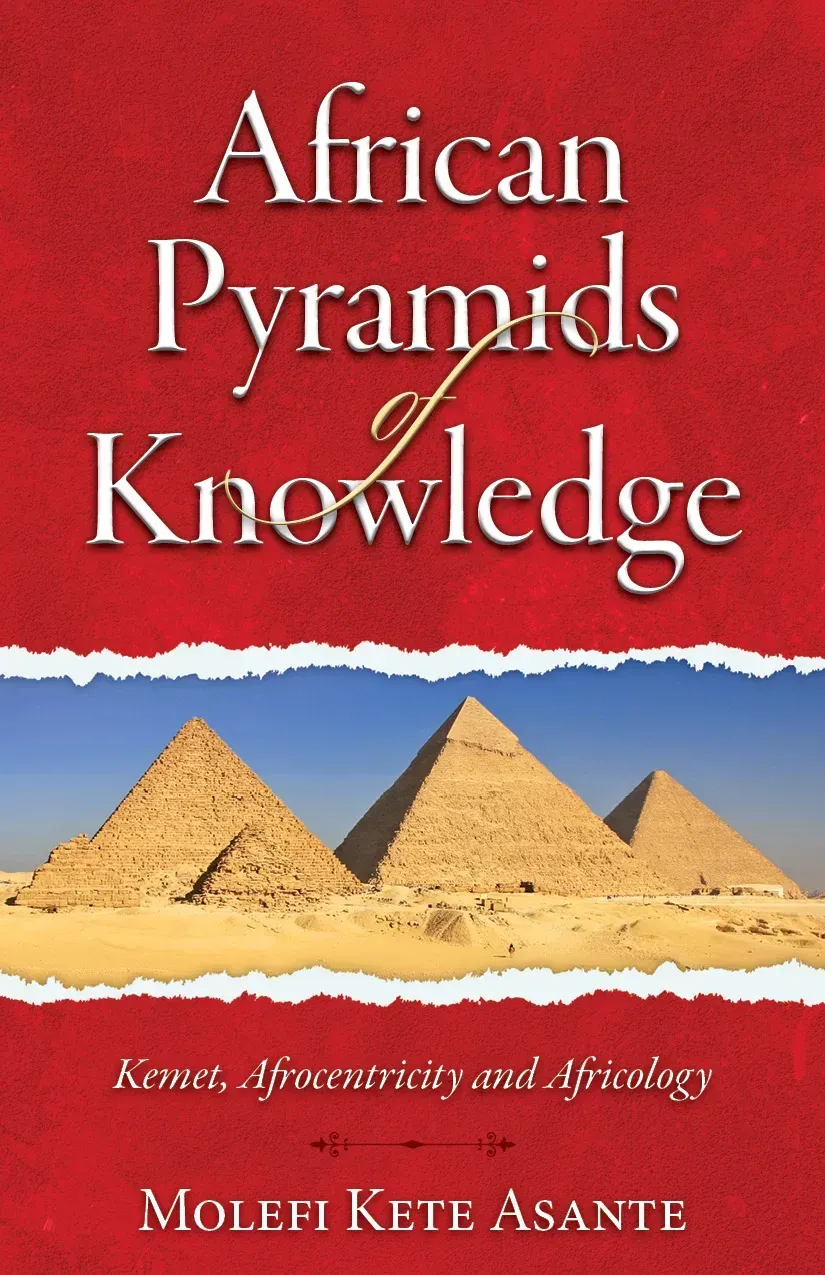
African Pyramids of Knowledge
Afrocentricity allows the student of human culture investigating African phenomena to view the world from the standpoint of the African. As Ama Mazama has argued in The Afrocentric Paradigm, Afrocentricity’s implications are multifarious and constant. Since the publication of Mazama’s book two decades ago (and spurred in turn by Dr. Asante’s Afrocentricity: The Theory of Social Change two decades before that), the theoretical and critical works on Afrocentricity have exploded. Dr, Asante’s current book brings us into the 21st century with new avenues for research and critique.
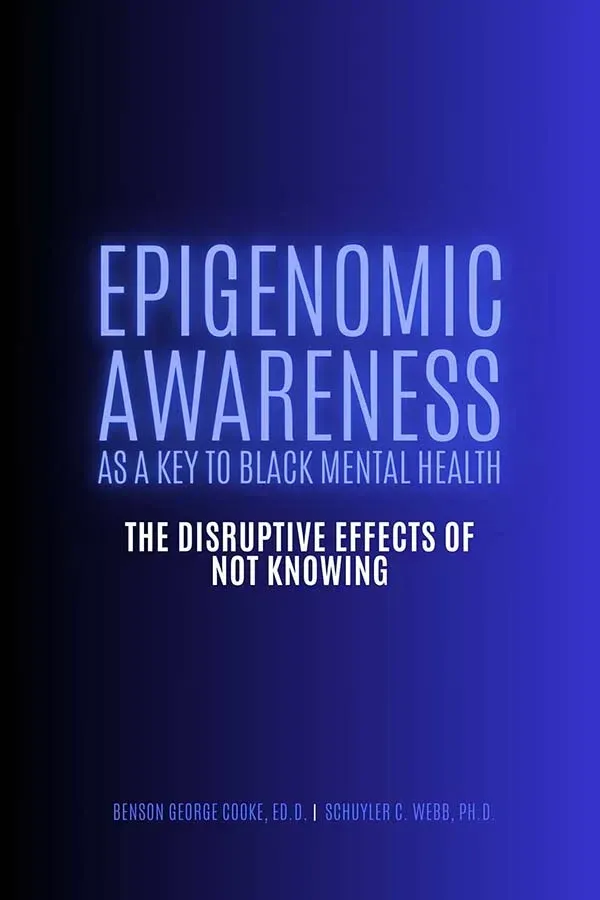
Epigenomic Awareness as a Key to Black Mental Health: The Disruptive Effects of Not Knowing
Benson George Cooke, Ed.D.; Schuyler “Sky” C. Webb, PhD, MB
Epigenomic Awareness as a Key to Black Mental Health explores the intricate ways in which external factors, particularly experiences of racism and discrimination, influence gene expression in the African American community.
This insightful book delves into the field of epigenetics, revealing how such factors can lead to significant health disparities, including higher rates of obesity, heart disease, hypertension, and diabetes. By examining processes like DNA methylation, histone modification, and the role of microRNAs, the authors highlight the biological mechanisms behind these changes and discuss how modifying environmental influences like stress, diet, and exercise can potentially reverse these epigenetic alterations, offering hope for improved health outcomes. This essential read underscores the urgent need for further research and targeted interventions to address the unique health challenges faced by African Americans.

Transcendental Africanity: The Key to Defeating Afrophobia and Reclaiming Global Africa
Transcendental Africanity is a groundbreaking exploration of identity and unity within the Global African Community. The authors, from Africa and the Diaspora, delve into the deep-rooted concept of Africanity, offering fresh insights into its historical, contemporary, and conceptual dimensions. The book confronts the pervasive phenomenon of Afrophobia—namely, the entrenched pattern of racial bias and discrimination targeted at Africans and Afro-descendants—and presents transcendental Africanity as the vital key to overcoming it in the twenty-first century and beyond.
The rigorous critical analysis that the authors methodically apply throughout this collective volume reveals how embracing transcendental Africanity can further unite Africans and Afro-descendants worldwide and empower their Global African Community against all forms of racial prejudice.
For anyone interested in the future of African identity, social justice, and global unity, this book offers a collective effort to rebuild the worldwide community of Africans and Afro-descendants and equip them with tools to reclaim the narrative of their past and own their present and future.
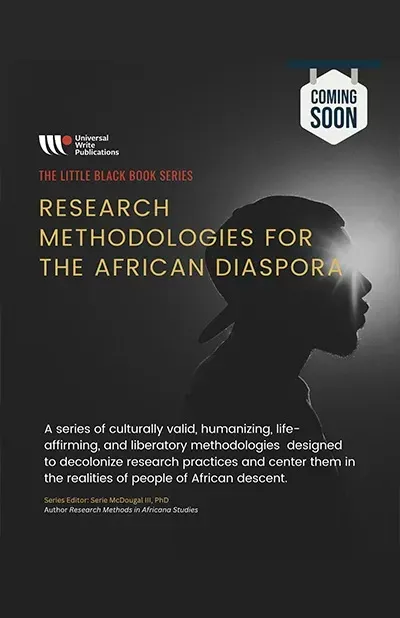
Sankofa: A (Re)search Methodology for (Re)membering, (Re)storing, and (Re)birthing Black Boys and Men
Written by Black scholars, the ‘Little Black Books’ are short and accessible texts for new researchers and graduate students explaining how to conduct culturally relevant theory and methods in research. Each title in the series will explore, explain, and advance methodological approaches across the social sciences and provide clear explanations, straightforward examples, and ready-to-use instructions on how to conduct research in the modern world.

Djaer, Deep Thinking in Africana Studies: Cultivating Critical, Creative and Ethical Reflection
Written by Black scholars, the ‘Little Black Books’ are short and accessible texts for new researchers and graduate students explaining how to conduct culturally relevant theory and methods in research. Each title in the series will explore, explain, and advance methodological approaches across the social sciences and provide clear explanations, straightforward examples, and ready-to-use instructions on how to conduct research in the modern world.

African Queer Theory
Written by Black scholars, the ‘Little Black Books’ are short and accessible texts for new researchers and graduate students explaining how to conduct culturally relevant theory and methods in research. Each title in the series will explore, explain, and advance methodological approaches across the social sciences and provide clear explanations, straightforward examples, and ready-to-use instructions on how to conduct research in the modern world.

Indexicality: An Africological Method of Inquiry
Written by Black scholars, the ‘Little Black Books’ are short and accessible texts for new researchers and graduate students explaining how to conduct culturally relevant theory and methods in research. Each title in the series will explore, explain, and advance methodological approaches across the social sciences and provide clear explanations, straightforward examples, and ready-to-use instructions on how to conduct research in the modern world.

Guide to Afrocentric Research Theories in the Humanities
Written by Black scholars, the ‘Little Black Books’ are short and accessible texts for new researchers and graduate students explaining how to conduct culturally relevant theory and methods in research. Each title in the series will explore, explain, and advance methodological approaches across the social sciences and provide clear explanations, straightforward examples, and ready-to-use instructions on how to conduct research in the modern world.

The Life History Method: Studying People Of African Descent-New
Doris Kakuru
Written by Black scholars, the ‘Little Black Books’ are short and accessible texts for new researchers and graduate students explaining how to conduct culturally relevant theory and methods in research. Each title in the series will explore, explain, and advance methodological approaches across the social sciences and provide clear explanations, straightforward examples, and ready-to-use instructions on how to conduct research in the modern world.
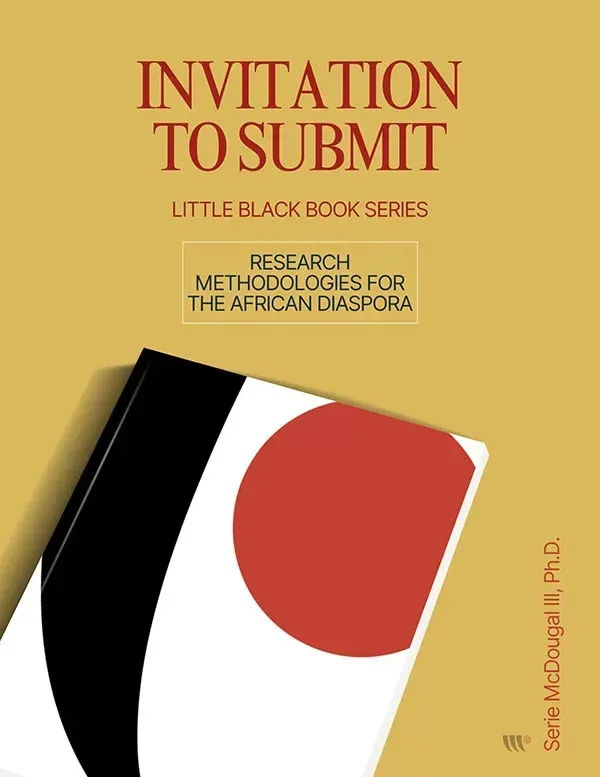
Invitation to Submit
(Little Black Book Series)
The Universal Write Publications (UWP) Little Black Book Series is designed to publish books on methodologies that guide research regarding people of African descent. The books teach students, researchers (including community-based researchers), and instructors about culturally valid, humanizing, life-affirming, and liberatory methods and methodologies in the tradition of Africana Studies (also referred to as Africology, Black Studies, Pan-African Studies, etc.). Special emphasis is placed on how specific methods or methodologies are applied at the various stages of the research process, consisting of qualitative, quantitative, historiographic, and/or mixed research methods research. These texts will help readers understand, but more importantly, implement research methods or methodologies specifically designed to help explore, explain, describe, and advance African/Black communities. With specific key assumptions, steps, and illustrative examples, each volume guides systematic thinking about the African/Black world.

